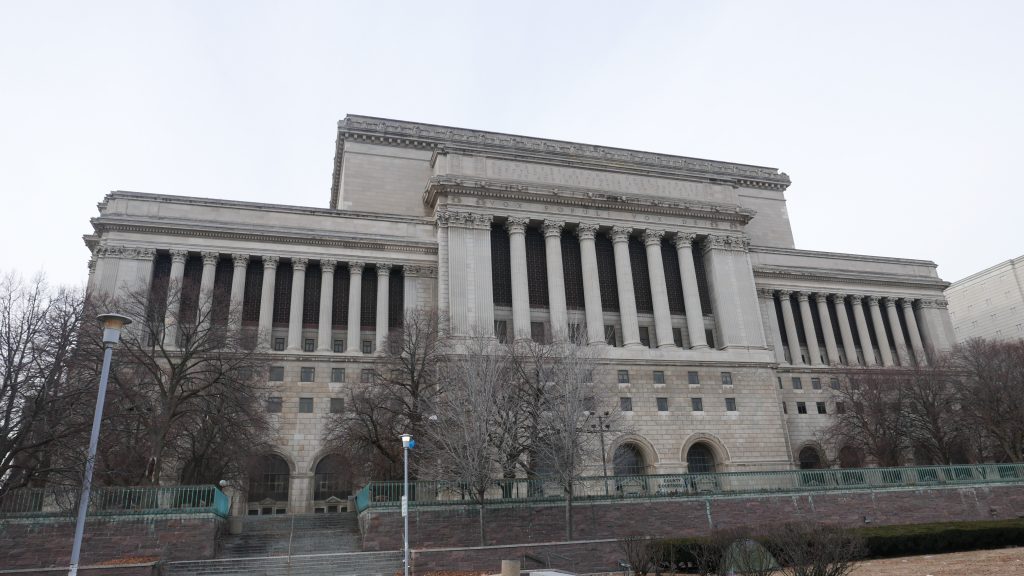County Budget Woes Expected To Return Next Year
Despite new sales tax, county likely to have to cut positions and programs.
The warm glow of the 2024 budget surplus will soon wear off for county policymakers.
The 0.4% sales tax implemented at the start of this year has already saved having to make millions in budget cuts, but it was never enough — nor was it expected to be enough — to fix the county’s overarching budgetary problem: money goes out faster than it comes in.
The county’s annual budget deficits are returning sooner than expected, in part due to increasing personnel costs, increased spending in the 2024 budget and a lack of dedicated funding for transit. The core problem that has plagued county budgets for more than a decade remains: government revenue is expected to increase by 1% over the next five years while expenses increase by 2.4%.
A new five-year financial forecast from the Milwaukee County Comptroller shows the county’s annual structural budget deficits will return in 2025, one year sooner than originally anticipated.
“Without a resolution, the only way forward for the county is still the perpetual cycle of annual expenditure reductions, continued reliance on one time revenues, and deferring maintenance, all which will undoubtedly adversely affect the essential services provided to the community,” the comptroller’s office concludes in its new five year forecast.
Structural Deficit
Comptroller Scott Manske is projecting an $11.5 million deficit at the start of the 2025 budget process, which the report says is “not as overwhelming as previous structural deficits.”
The comptroller’s office calls the difference between the amount of money the county has and the cost to maintain the government at its current level the “cost to continue.” Over the next five years, the comptroller estimates the cost to continue will average approximately $13 million.
Without the additional revenue from the 0.4% sales tax, the county was looking at massive budget deficits totaling more than $100 million by 2028. Now the county is looking at a $57.4 million structural deficit by 2028 and $68.9 million by 2029.
The projected budget deficit could have been significantly worse, the report noted. But $26.4 million of 2024 property tax levy funding was used to pay for one-time infrastructure expenses. Because the property tax levy is a recurring source of revenue, this funding will return in the 2025 and can be shifted to the county’s operational expenses. Had the levy been used for recurring expenses, policymakers would be faced with a budget deficit of nearly $38 million.
But the county board did play a game of musical chairs with debt and cash in the 2024 budget, contributing to the projected deficit for next year.
Supervisors took cash funding out of infrastructure projects and replaced it with additional borrowing to move the cash into operational expenses. The comptroller’s report notes the board will likely have to defund a number these programs and expenses in order to balance the 2025 budget.
“This could potentially mean the defunding of items within the Department of Health and Human Services such as housing fiscal agents, case management, and vouchers, senior home repair, or birth-to-three and aging services,” the report states. “Other areas with significant potential ‘one-time’ expenditures that could be defunded include various appropriations for Park enhancements, traffic and water safety, and aquatic implementation as well as funding for the mental health court in Pre-trial Services.”
Taxes
The 2024 budget reduced property taxes by a historic $21.4 million. But, according to the five-year projection, that was the first, and now last, time county taxpayers will see property tax relief for awhile.
The increased sales tax revenue frees up property tax revenue by using the new revenue to pay pension obligations that were previously paid with property tax dollars. But the comptroller expects all the freed up property tax revenue will be needed to fill holes in the county budget and that policymakers will likely need to increase property taxes again in 2025.
Transit System
Using the property tax funds freed up by the implementation of a new sales tax, policymakers managed to forestall a massive funding cliff for the Milwaukee County Transit System (MCTS).
Before the implementation of a new sales tax, MCTS was expecting a $25 million budget deficit next year. The 2024 budget provided an “unprecedented” $17.8 million increase to the transit budget, allowing it to extend its federal pandemic stimulus funding into 2026.
The transit system is expected to be able to patch the holes in its 2025 and 2026 budget using remaining stimulus funds and repurposing federal infrastructure grants for transit operations. The comptroller is now projecting a transit funding deficit of $12.6 million in 2027, and reaching $17.5 million by 2029.
Staffing Improves, Budget Worsens
The county, like many organizations in recent years, has struggled to fill all the positions it has open.
The large number of vacancies, though, has led the county to save millions on salary and healthcare costs; helping departments balance their budgets and providing policymakers excess funds to utilize at the end of a budget. The trend is expected to end.
In response to inflation and staffing trouble, the county instituted a number of raises, including a 14% raise for correctional officers in the jail, Community Reintegration Center and Vel R. Phillips Juvenile Detention Center. At the same time, county departments found more success filling positions in 2023, and “the return to more normal staffing levels is likely to cause strain on future structural deficits as salary and fringe benefits are increasing at higher rates than previously forecasted.”
Read the full report on Urban Milwaukee.
Update: This story has been updated to reflect that the 14% raise was for county correctional officers, not sheriff’s deputies.
If you think stories like this are important, become a member of Urban Milwaukee and help support real, independent journalism. Plus you get some cool added benefits.
MKE County
-
Ron Johnson Says Free-Market Principles Could Fix Education
 Jul 17th, 2024 by Graham Kilmer
Jul 17th, 2024 by Graham Kilmer
-
RNC Will Cause Some County Services To Be Moved to Wauwatosa
 Jul 12th, 2024 by Graham Kilmer
Jul 12th, 2024 by Graham Kilmer
-
Hank Aaron State Trail Will Be Closed For RNC, State Fair
 Jul 12th, 2024 by Graham Kilmer
Jul 12th, 2024 by Graham Kilmer






















